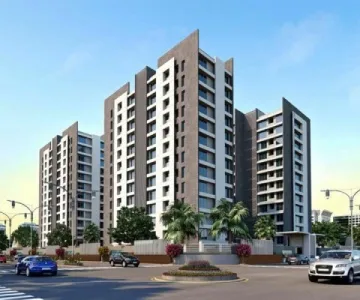Last Updated on May 26, 2025 6:46 am by BIZNAMA NEWS
R. Suryamurthy
An overwhelming majority of Indians – 80% – prioritize homeownership over other housing formats, according to the latest “Beyond Bricks: The Pulse of Home Buying” report by Knight Frank India, a leading real estate consultancy. The study highlights a strong positive purchase sentiment across the country, with millennials and high earners showing the most robust intent to buy.
The survey, which interviewed 1,629 respondents across India’s top eight cities, revealed that the aspiration for homeownership remains deeply rooted in Indian society. This sentiment is particularly strong among high earners with annual incomes exceeding INR 5 million (91%) and millennials (82%).
Shishir Baijal, Chairman and Managing Director, Knight Frank India, commented, “Homeownership has emerged as a robust and enduring trend, particularly in the post-pandemic period, resulting in a marked increase in residential demand. This momentum was further supported by proactive measures undertaken by regulatory authorities, including extended reductions in REPO rates and buyer-centric incentives such as stamp duty rebates. Collectively, these factors repositioned homeownership as a symbol of financial security and future stability. Additionally, sustained economic growth has reinforced buyer confidence, contributing to continued resilience and activity within the residential real estate sector.”
Regional and Demographic Trends in Homeownership:
The desire for homeownership is strongest in Chennai (86%), Ahmedabad (83%), and the Mumbai Metropolitan Region (85%), driven by increasing disposable wealth, financial stability, and cultural significance. Kolkata (80%) and Hyderabad (81%) also demonstrated high ownership preference, largely due to a desire for long-term security.
In contrast, Delhi-NCR (74%) and Bengaluru (73%) showed slightly lower homeownership sentiment. This is attributed to higher property prices and a significant influx of young, migrant professionals who often favor rental accommodations.
Demographically, high earners and millennials are the primary drivers of purchase sentiment, owing to their higher disposable wealth and financial security. Gen Z (71%) and lower-income groups earning less than INR 1 million annually (72%) exhibited relatively lower homeownership sentiment, influenced by affordability constraints, a preference for lifestyle flexibility, and early career mobility. This indicates a growing need for accessible financing solutions and entry-level housing options catering to diverse consumer demographics.
Key Drivers for Home Ownership:
The survey identified several common motivations behind home purchases:
Upgrading Living Space: A significant 37% of respondents across the country are looking to purchase a home to upgrade to a better living space.
First-Time Homebuyers: Nearly a third (32%) are first-time homebuyers seeking a house for end-use.
Apartments remain the most preferred residential choice across all generations and income groups. However, higher-income buyers showed a stronger preference for independent houses and villas, highlighting a desire for greater space, privacy, and premium living.
Regional variations in purchase drivers were also evident. Bengaluru (40%) and the Mumbai Metropolitan Region (34%) saw a higher proportion of investment-driven purchases. Conversely, prospective buyers in Chennai (51%), Ahmedabad (48%), and Delhi-NCR (42%) were primarily looking to buy their first homes for end-use. This trend is reflected in robust early purchase sentiments in markets like Delhi-NCR, where homebuyers show keen interest in under-construction and pre-launch properties, attracted by modern amenities, pricing flexibility, and renewed confidence in project delivery.
Prioritizing Amenities:
Access to common amenities is a significant factor for prospective Indian homebuyers:
Health Facilities: Over half (58%) prefer their new homes to be closer to health facilities.
Shopping Outlets: A similar number (53%) prioritize proximity to shopping outlets.
Public Transport: 40% of respondents consider public transport access a crucial factor in their decision-making.
Interestingly, features like fitness centers (16%) and community clubs (23%) ranked lower, with most homebuyers expecting them as standard inclusions in modern housing projects. This suggests a growing shift towards more informed and strategic decision-making, balancing financial viability, convenience, and long-term value. While location, affordability, and developer reputation continue to be paramount, lifestyle amenities and financing options are increasingly influencing buyer preferences.




